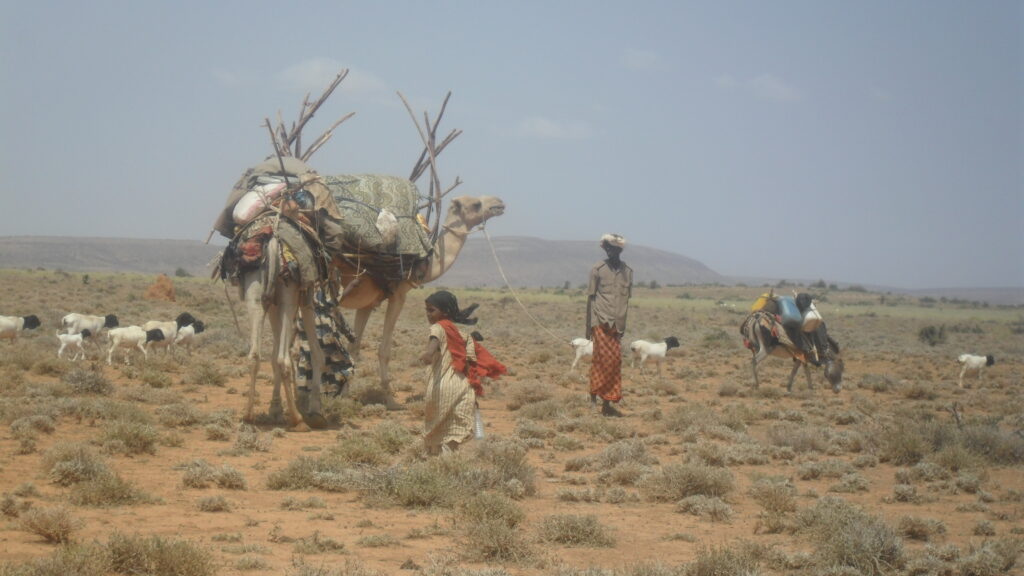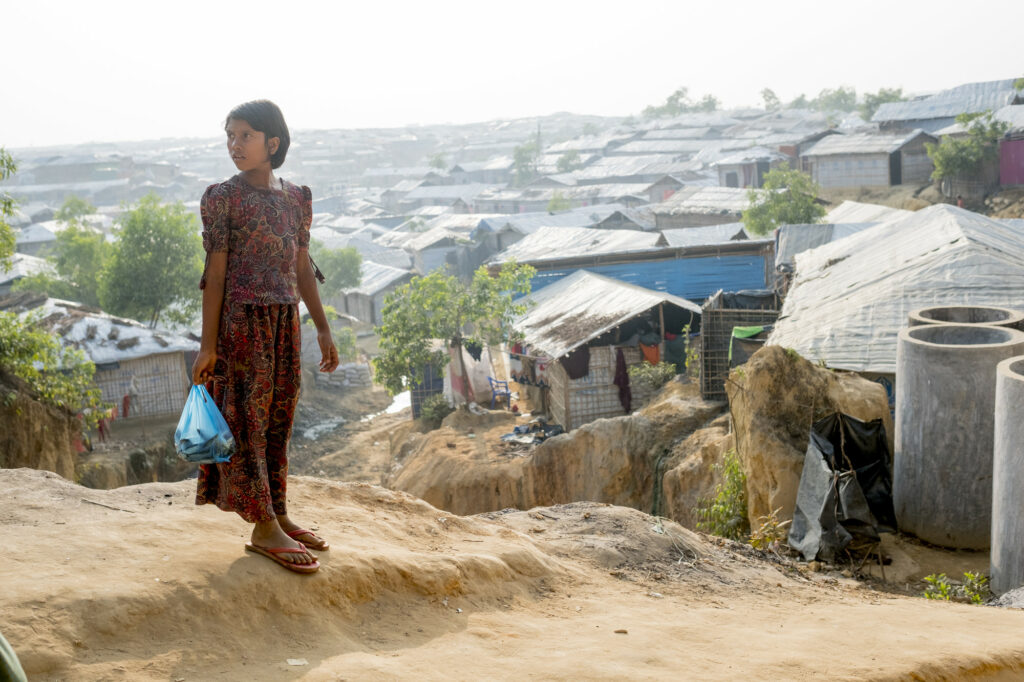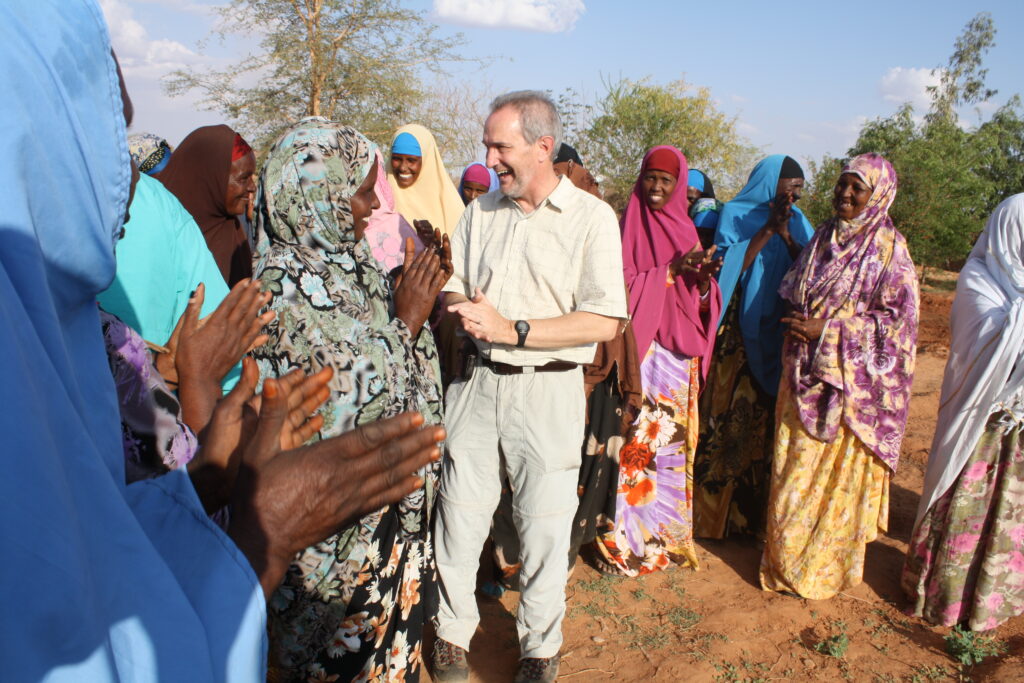Humanitarian Aid
Serving at the End of the Road with Nick Archer

On Episodes 5 and 6 of The End of the Road podcast, World Concern President, Nick Archer discusses why an organization would intentionally choose to work in difficult, dangerous, and hard-to-reach places. With so many places in need around the globe, it’s common to wonder why and how an organization decides to venture into the most remote and challenging places.
This conversation with Nick Archer gives you a closer look at the why behind those commonly asked questions, an overview of who we are and what sets World Concern apart from others. Here’s an overview of a few answers from Nick Archer to questions discussed on the End of the Road podcast.
Q: How does World Concern decide where to work?
A: I think World Concern considers where we serve to be a calling. We look at different factors, we look at poverty levels. Does a community live on $1 a day, or do they live on $2 a day? We also consider if are people seriously impacted by conflict in some way? And does that exacerbate their situation?
We take into consideration if they have access to different things we would consider absolutely essential? Do they have access to clean water? Do they have a reasonable means of sustaining themselves? Today we are hearing so much about climate change and things like that. What are the drivers that are affecting people and diminishing their quality of life and how do we step into that space? Is conflict present? Is poverty present? How far away are they from government reach? Can we be part of the solution? Each of those are some of the key things we consider.
Q: Why does World Concern choose to serve challenging places at the end of the road?
A: When talking about the end of the road, we’re looking at communities, families, and villages that are out of reach from most humanitarian organizations and governments. The further away people are, the harder it is for them to get any benefits from organizations. We assess the need of those far away from necessary resources.
The end of the road is not necessarily a village out in the middle of nowhere. It could be urban poverty, it could be a community, or people living in a large city where they continue to be in need and don’t have access to some of the basic necessities and resources, including safety. World Concern considers the end of the road a place of great need.
Two big drivers are poverty and marginalization. If you can think of two words, those would be the two words to think about. Now, along with that, of course, our Christian identity and ethos as an organization drive us too and that's probably the overriding piece. But when it comes to really practical challenges that people face, we really look at poverty and marginalization. So that's to the degree that people can fend for themselves and make a reasonable life.
Q: How does the World Concern mission impact the way we serve in challenging places?
A: World Concern has a mission of hope and part of that hope is dignity. It’s how we interact with people. Too often we want to do things for people and we decide what their need is. This disempowers people and can make them feel worthless. World Concern goes in and asks them what they think their need is and what they think the solution is.
This dialogue changes the dynamic of the relationship. They begin to realize that someone else is interested in their opinion and circumstances. This person isn’t telling me what my problem is. World Concern asks, “How can we journey with you as we solve this problem in your community?” This gives them value and restores dignity. From there, they’re empowered to own their solution and begin to experience restoration of their sense of value and worth. Then, we are able to journey with them by examining the history of what has gotten them where they are now and that information is owned by the community and we can assess how to best move forward and invest in the community.

Q: Who are the World Concern staff that are engaging in relationships with the community?
A: Most of the staff are nationals of the countries where they work. Our World Concern staff approach each community with an attitude of service and learning when they go into each country. The quality of the character and the servanthood of the staff, the willingness to listen, and the willingness to learn, play a major role in the work that we do around the world.
For many of our staff, it's a big sacrifice leaving their family to go to a country and serve there, live there, learn the language, and understand the people. They make a huge sacrifice in doing that because a lot of them have young kids at home. Our staff sometimes goes for a month or sometimes they do six weeks.
Even in some of our inside country programs we have, our staff make significant sacrifices to work in different tribal and ethnic areas as well. That's not something that we in the West have to wrestle with very often. But it's a bit like me asking one of you to go work in a downtown part of your own city that you consider difficult, violent, rough, or where you might be a target. Some of our local staff make those kinds of sacrifices too, on a daily basis.
Q: In some places, conflict is a displacer of people. Is the goal to eventually get people who have been displaced from their homes to the point where they can go back home and be equipped to survive in their community?
A: In some cases, the objective is to have people go back to where they came from to restart their livelihoods. World Concern has done some of that in the past, particularly, in Eastern Chad and Darfur, we've done a little of that. On the other hand, there are some cases where going back is not an option. Either because the livelihood that they once knew is no longer feasible or because the conflict that they've gotten wrapped up in has become so entrenched that to go back would actually be to basically walk into a death trap.
So, where we can, World Concern engages in things like trying to help people learn different skills. It could be something as basic as bicycle repair, auto mechanics, or carpentry. Particularly for young people who have no access to school, we’re able to equip them with a new skill and help them find a means of employment in that skill, which provides an income for their family. In other cases, if people can move back, then we try and support them in that. However, it is context-specific and we must look at the factors in each case.

Q: What criteria do you look at to determine whether or not World Concern will respond to a crisis? What are some of the reasons World Concern might not go to a certain area?
A: World Concern is working in 13 countries either directly or through a partner. So, if a major crisis, a major disaster happens in one of those places, then that's at the top of World Concerns priority list in terms of should we respond? What would we do if we did? It's important that while we work in disaster, we're also working in long-term strategies to change people's stories so that they can mitigate disasters when they come along. But if a crisis happens outside of those 13 countries that we're already working in, then we look at issues of severity.
We look at issues of numbers and how many people have been impacted and what was destroyed. Then we decide on whether we get involved or not. We also work with several other partners of like-minded organizations and sometimes those organizations will use their resources and collectively say, okay, we need to work in this place right now. This is needed, but we can pull our resources and collectively work in a place that we weren't previously working in. So, there are several layers to deciding whether or not we actually get involved.
Q: What are other important things to consider when responding to a crisis at the end of the road?
A: It is important to coordinate with other partners or other organizations that are already on the ground so that we're not coming in and actually creating more chaos in an already chaotic situation. We have to ensure we’re not overlapping with services or ways that we're responding. And the other thing is that the local government actually has to invite international aid. They have to say, we cannot handle this ourselves and we need your help. If they don't do that, then we don't go into that situation unless they ask for it. If they've got the capacity to respond themselves, then that's the first line.
And I think that's increasingly the case. More and more governments feel it's their responsibility to respond to their own crisis, but they will from time to time invite outside organizations like us to assist. But we do wait for the invitation from them and coordination is something that we absolutely have to work on and keep working on to get better at it. You know, humanitarian organizations have often been criticized for not coordinating. Either coordinating with one another or with the local government, but that's something that we really put a lot of effort into.
We try and coordinate both our funding and the activities that we do with like-minded partners and organizations. So, if more than one of us is working in the same place, we try and do different things so that we're not all trying to do the same thing in our own way. But to actually coordinate our assistance so that one of us is working on one aspect, maybe shelter, somebody could be working on medical-related issues, things like that. But coordination is absolutely central to the way we go into a place to actually participate in who's going in there and what are they doing?

Q: Why doesn’t World Concern serve domestically in the US when there's a disaster or when there's a need or a crisis in the US?
A: World Concern has been in existence for over 60 years, and we've always seen it as our primary mission, our primary calling to work internationally. That was a decision that we made many, many years ago and we don't feel we've had any need to revisit that. Along with that, we do have partners who work domestically, and sometimes we will in some way support them in their domestic response, because we do get people who want to give and whether it's a different situation that happens in this country. So we will tend to use a partner that we're already familiar with who we know that does good work.
But every organization needs to focus in order to be effective in what they do. And for us, our lens is international work. It's not that there aren't needs at home. Absolutely there are needs at home here in the US, but there are also many, many organizations already working here in the US. Red Cross, Salvation Army, many, many, many domestic organizations. And so that's part of their mandate, ours is the international lens. And so that's where we keep our focus.
Q: What are some of the factors that prevent people from leaving a crisis or conflict, or a place that is perpetually challenging to live in?
A: Let's try and put ourselves in the shoes of those who may live in perpetually challenging places. I mean, in North America, there are many things we don't want to give up because of where we live. For those who might be familiar with scripture, if you read the stories in the early part of Genesis about Abraham and Jacob moving around with their animals, while there are many places in the world that are really still like that today, they move around and they’re looking for two or three things.
They look for pasture, they look for water. Those two things. If you are an animal keeper, if you are a pastoralist, those are the two big drivers of your existence, okay? That's what puts food on the table. That's what puts a roof over your head. So, when those things become increasingly scarce, people must move to find them. That's what pastoralists do. They move because their animals are their livelihood. So, conflict results often because of that, because then you get people who are clashing over the use of very limited resources, land, and water. And if a pastoralist loses those things, he loses in entire livelihood. You know, in North America we talk about the disappearance of certain industries. We could say, well, why don't you just retrain? Or, just get another job.
And what you see happening increasingly today is situations where pastoralists, as an example, are forced to give up pastoralism simply because their animals are dying off and they actually lose their livelihood. Mainly because the rainy seasons are becoming increasingly unpredictable. They end up most frequently becoming internally displaced people and they're being displaced on the edge of a big city with no work. And then at that point, when they lose their animals, they're reduced to poverty because of the fact that they've lost their livelihood. And then you see, there are no food stamps to help them out. There's no government social network to fill a hole. They are truly destitute and just scratching for any kind of avenue to put food on the table.

Q: How does World Concern try to help people prepare for potential issues that are ahead?
A: World Concern particularly prepares for when those issues that they rely on start to collapse or fall apart. A bit like I was talking earlier about the pastoralists and the two issues of water and food for the animals. What do you do to help people mitigate if those things start to go seriously wrong? Many of those people we work with are resilient in their own right. I mean, you and I would be completely hopeless because we don't know how to survive and we panic when a lot of our backup mechanisms are no longer there.
Our work is about helping people when they reach the point where the systems that they rely on and the things that they rely on are no longer in place or they're no longer working the way they used to work. And helping them navigate that and continuing to have a life of freedom and a future, and at least food on the table and a roof over their head.
Learn more about World Concern, our mission, where we serve, what we do at the end of the road, and more here.
All of the information here is an excerpt from the End of the Road podcast. We have new episodes weekly and you can tune in here. Stay tuned for more blogs about the End of the Road podcast here.